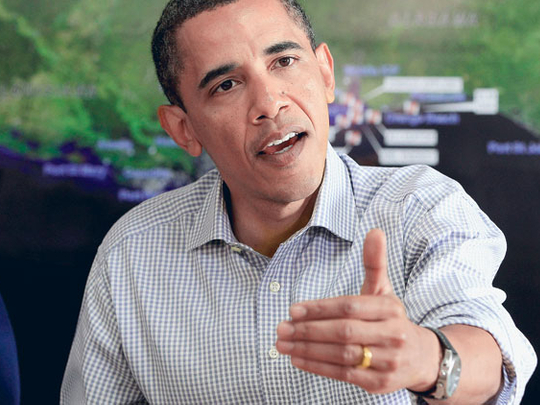
It would be a ‘horror,' a ‘disaster', according to lawyer Kenneth Feinberg, who was appointed by President Barack Obama to administer BP's $20 billion (Dh73.44 billion) compensation fund for victims of the Gulf oil spill. "That's not an option," said Feinberg talking about a bankruptcy filing by BP.
"Bankruptcy absolutely is an option and the US needs to recognise that," said Peter Kaufman, president and head of restructuring and distressed M&A at the Gordian Group, an investment bank in New York. But which is it?
No company has the ability to pay unlimited claims, even one that earned $16.6 billion (Dh60.95 billion) last year and more than $20 billion (Dh73.44 billion) annually in the previous four years. At the same time, no one has any idea how big BP's damages will be. That hasn't stopped Wall Street analysts from churning out estimates that move up in lockstep with the number of barrels thought to be leaking from the collapsed well each day. How many companies are willing to face unlimited civil claims, the prospect of criminal prosecution and daily excoriation by the US government before going on the offensive?
That's Kaufman's argument for why BP should consider filing for Chapter 11 bankruptcy. (And the US should consider the implications of such an outcome.) In the US, unlike in most countries, "you can file for bankruptcy even if you are perfectly solvent," said Jay Westbrook, Professor of Law and a bankruptcy specialist at the University of Texas, Austin.
Don't try pulling a fast one to avoid paying the bills. The courts have developed a "doctrine of good faith," Westbrook said. "If you're abusing the bankruptcy code, they will throw it out."
If BP's damages, or even "reasonably probable damages", exceed the value of the company, or if it faces a liquidity crisis, bankruptcy would be a way to organise the claims into a "sensible, orderly, fair process," he said.
US Interior Secretary Ken Salazar may think keeping the "boot on the neck" of BP is a good strategy, but he should understand that BP has a stiff boot of its own. What if the company were to utilise its considerable financial and legal resources and the insolvency laws of the US or Great Britain "to make it extremely difficult and time consuming for legitimate claimants to get succour?" Kaufman said. (It wouldn't be a first for an oil company.)
BP is already the most reviled company in America. Two of its refineries accounted for 97 per cent of the violations (a total of 862, of which 760 were "egregious willful") in the refining industry over the last three years, according to the Centre for Public Integrity. It holds the record for the largest fine ($87 million Dh319.47 million) ever levied by the Occupational Safety and Health Administration.











